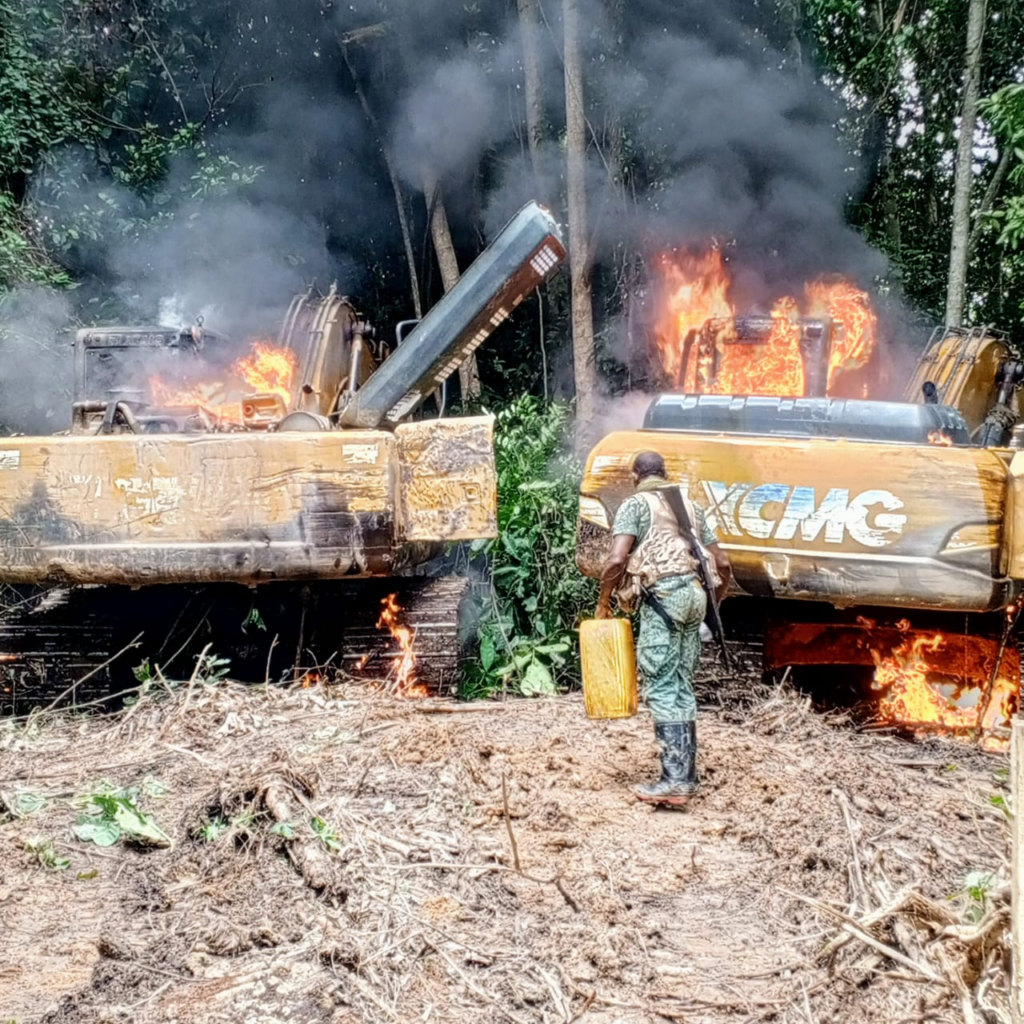Illegal mining activities, also known as galamsey, continue to wreak havoc on Ghana’s forest reserves, posing significant environmental and health risks. In the latest crackdown, the Forestry Commission’s Rapid Response team raided a galamsey camp in the Subri Forest Reserve near Benso in the Western Region, arresting four armed miners and seizing a cache of weapons.

The suspects, all Ghanaians, were caught mining in a Globally Significant Biodiversity Area, a critical part of the forest that is now under threat from destructive mining operations.
The raid, part of a broader effort to curb illegal mining in the Takoradi Forest District, highlights the devastating impact of galamsey on the country’s natural resources.
During the operation, the team seized five pump-action guns, 77 rounds of ammunition, and burnt three excavators used in the mining activities. Other equipment found at the site has been handed over to the Takoradi police for further investigation.

The arrested suspects, identified as Innussah Yussif, Issah Seidu, Shadrack Yowson, and Emmanuel Adawusu, are believed to have been backed by influential figures, allowing them to operate with impunity while inflicting severe damage on the environment.
Galamsey activities are not only leading to the destruction of Ghana’s forest reserves but are also contaminating rivers and water bodies with toxic chemicals like mercury and cyanide.
These chemicals are used to extract gold but end up polluting drinking water sources, harming aquatic life, and posing serious health risks to local communities. In areas where rivers are heavily polluted by galamsey operations, reports of children born with deformities have increased, attributed to long-term exposure to these hazardous chemicals.

The Subri Forest Reserve, where the latest arrests occurred, is just one of many areas being degraded by illegal mining. Forests that once served as vital ecosystems, supporting biodiversity and providing clean air and water, are being stripped away in search of gold, leaving behind barren land and polluted rivers.
These environmental crises are worsening, leading to increased flooding, soil erosion, and the loss of livelihoods for communities that depend on agriculture and fishing.

Despite ongoing efforts by the government and agencies like the Forestry Commission, illegal mining remains a persistent problem, driven by powerful interests and high global demand for gold.
The destruction of Ghana’s forests and water bodies threatens not only the environment but also public health, as toxic pollution contributes to serious conditions, including birth defects, respiratory issues, and contaminated food sources.

As the Forestry Commission continues its operations to curb illegal mining, there is growing pressure on the government to crack down harder on those responsible, including the influential figures who support these illegal activities.
Without stronger enforcement and community involvement, Ghana risks losing its forests, rivers, and the future of its people to the ongoing devastation caused by galamsey.
Source: www.kumasimail.com

































































